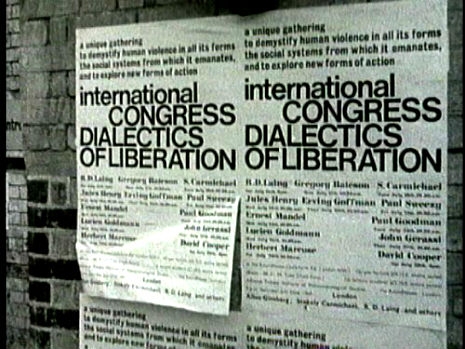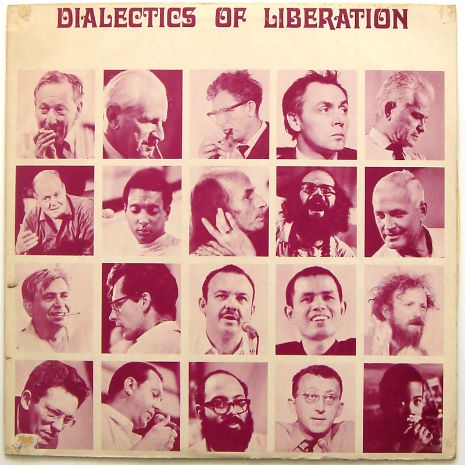
When I “get into” a certain topic or musical genre or filmmaker or author or TV show, I’m one of those people who has to devour all of it. The whole thing. I don’t stop until I’m done and burping it up.
Recently it’s been the not-so twin topics of the “Laurel Canyon” rock sound of the late 1960s/early 1970s and plowing through the major works of The Frankfurt School, that have occupied a lot of my spare time. I’m especially enjoying re-reading the work of the Freudo-Marxist philosopher Herbert Marcuse, books I first read, well, thirty-some years ago. Although some of the groundbreaking ideas of Marcuse and the Frankfurt School seem rather more obvious today than they would have in the 1960s at the height of their influence, there are many useful concepts to be re-discovered there that are more relevant today than they have ever been. Marcuse’s work is ripe for a new generation—specifically this very restless up and coming generation—to pick up on, perhaps via the intermediary of someone who could popularize his admittedly somewhat difficult to read philosophy.
Although his name, sadly, rings few bells in 2012, Professor Herbert Marcuse was the “father of the New Left” with his influential books like Eros and Civilization, One Dimensional Man, and Counterrevolution and Revolt. For an elderly professor with a thick German accent, Marcuse was an intellectual rockstar in the 60s and early 70s. Back then, his work was discussed with the same seriousness as Marx’s or Sartre’s or Carlos Castaneda’s. He was denounced by right-wingers like Governor Ronald Reagan who was incensed that Marcuse’s salary was paid for by California’s taxpayers.
I discovered Marcuse in a fairly roundabout way. As I’ve written about before elsewhere, I was a huge Ayn Rand head when I was a kid. Ironically, it was via an article published in her magazine The Objectivist (“Herbert Marcuse, Philosopher of the New Left” by George Walsh) that I first came across the ideas of the New Left. Not all that long afterwards, I became much more interested in the types of philosophers that Rand and her disciples decried as academic barbarians, dangerous irrationalists and mutilators of student’s minds, than I was in Rand herself.
Not only did I find that the ideas of the New Left resonated more with my own innately experienced view of the world around me, it also seemed clear that if the ideas of Marcuse and the Frankfurt School terrified the Ayn Rand brigade as much as they obviously did, then they must also be more authentic ideas, too.
But the problem with some middle-aged infomaniac like yours truly recommending that you seek out the work of Herbert Marcuse is that few people actually reading this far will even bother to visit his Wikipedia page let alone buy one of his books. Books seem to have a lifespan of about fifteen years (with some major exceptions, of course) and no one wants to read an old book. Especially not these days, so how would it be that these ideas could spread in the culture again and flourish the way they once did? That’s tough. As a former book publisher, I can tell you for sure: it’s worse than tough, it’s nearly impossible.
That’s why I was so pleasantly taken aback by a very cool-sounding theatrical experience that I read about recently that aims to breathe new life into some old ideas, when some actors recreated an historically important counterculture gathering called “The Congress on the Dialectics of Liberation (for the Demystification of Violence).”

This event originally took place at the Roundhouse in London, between the 15th and 30th July, 1967. Aside from the grandfatherly Marcuse, the well-respected éminence grise of the assembled, the participants included anarchist prankster Emmett Grogan of the Diggers (who fucked with the heads of the attendees by delivering a translated speech of Hitler’s and passing it off as his own), performance artist Carolee Schneeman, Julian Beck of The Living Theatre, Paul Goodman, Gregory Bateson, poet Allen Ginsberg, R.D. Laing, Francis Huxley, “Auto-Destructive art” movement and “Art Strike” founder Gustav Metzger and Black Power leader Stokely Carmichael.
The Congress on the Dialectics of Liberation was organized by the American “anti-psychiatrist” Joe Berke and others from the Institute of Phenomenological Studies. The idea was to spontaneously create a “free university” to revolutionize the masses, a notion inspired by Alexander Trocchi.
The event drew together the bohemian culture of New York’s Lower East Side with Europe’s own rebel groups in art, literature, politics and psychiatry, producing what has been justly described as the ‘numero uno seminal event of [London] 67’, a sometimes joyous but often angry anti-coalition of ‘politicos’ and ‘culture wizards.’
‘All men are in chains’, runs a flyer for the congress. ‘There is the bondage of poverty and starvation: the bondage of lust for power, status, possessions. A reign of terror is now perpetrated and perpetuated on a global scale. In the affluent societies, it is masked. There, children are conditioned by violence called love to assume their position as the would-be inheritors of the fruits of the earth. But, in the process, they are reduced to little more than hypothetical points on a dehumanized co-ordinate system. …We shall meet in London on the basis of a wide range of expert knowledge. The dialectics of liberation begin with the clarification of our present condition.’
The congress opened on the morning of the 15th with a lecture by the anti-psychiatrist R.D. Laing and closed on the 30th with a lecture by the Digger Emmett Grogan, following an happening by Carolee Schneemann and a performance by the British pop group The Social Deviants the previous evening. Gregory Bateson, Stokely Carmichael, Paul Goodman and the German philosopher, Herbert Marcuse were amongst other public figures who spoke. There were seminars in the afternoons and films and poetry readings in the evenings. ‘The Provos were there from Amsterdam. There were students from West Berlin, political activists from Norway and Sweden as well as a large contingent from the New Experimental College, Thy, Denmark. There were representatives from the West Indies, Africa, France, Canada, America, Holland, India, Nigeria and Cuba,’ and remarks by the poet Susan Sherman, one of Berke’s friends, who covered the congress for Ikon magazine.
The congress radicalised many black (and white) people in the audience and acted as an (ironic) influence on the Women’s Liberation movement. It also led to the foundation of the anti-university of London in Shoreditch in 1968, a further important experiment in radical education.
On February 12th in London, the Dialectics of Liberation conference was reenacted with the original organizers, and actors playing the roles of leading speakers. It’s difficult for me to say much more about a theatrical performance I haven’t seen, but this is an interesting idea to get certain ideas back into currency again. Apparently there were also earlier performances at Occupy London and a twenty-first century version of the Congress, called the Dialektikon, is planned for later this year in London. You can read more about it on their website.